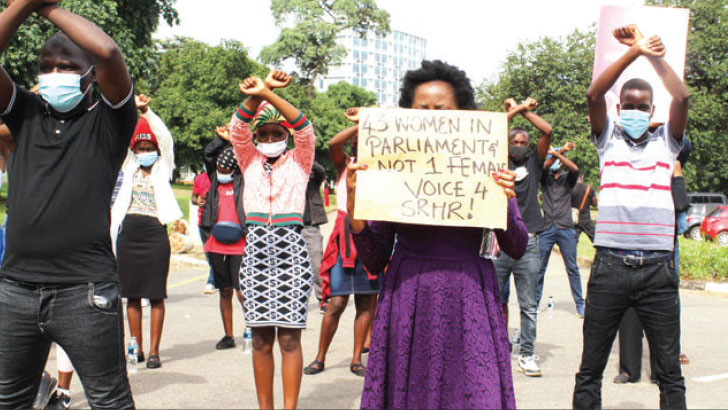‘Youth bear the brunt’
It is the World Safe Abortion Day and some young Malawians demand change, our Staff Writer JAMES CHAVULA writes.
Some young Malawians are rising to challenge lawmakers resistant to proposed exceptions to Malawi’s anti-abortion laws blamed for deadly backstreet abortion.

Clandestine abortions remain rampant as laws inherited from Britain ban abortion except to save a woman’s life.
In 2009, the Ministry of Health reported that abortions happening outside healthcare facilities claim six to 18 lives in every 100 pregnancy-related deaths.
Phalombe Youth Arms Organisation (Pyao) wants this to change because the youth, mostly in rural areas, bear the brunt while the urban minority safely aborts in private clinics.
“The youth suffer untold hardships, including deaths, as the government spends billions treating post-abortion complications instead of tackling the problem by changing the law,” says Dave Thom, a member of Pyao.
The group lobbies policymakers to improve access to youth-friendly sexual and reproductive health.
He explains: “The youth are sexually active, but almost a third of girls fall pregnant before reaching 19 because they lack access to youth-friendly SRH services.
“The well-off clandestinely pay to safely terminate unwanted pregnancies in private clinics, but those who cannot afford it die or suffer life-changing complications after using wires, sticks, drug overdoses and toxic herbs prescribed by unskilled hands.”
Reproductive health researchers at the Kamuzu University of Health Sciences (Kuhes) and the US-based Guttimacher institute report that about 141 000 women induced abortions in 2015 and 60 percent received treatment for complications that make unsafe abortion the fourth largest cause of pregnant-related deaths estimated at 439 in every 100 000 babies born alive.
In 2000, government moved to tackle the top killers to reduce maternal deaths by 75 percent in line with Millennium Development Goals which expired in 2015. The country missed the target to reduce maternal deaths by 75 percent.
Dr Chisale Mhango, lead researcher from Kuhes, says maternal deaths will remain high “unless we tackle all major killers”.
“We now have solutions to all major killers, except unsafe abortion. Our maternal mortality rates will remain high unless we decisively tackle this as we do with hypertension, bacterial infections and Aids,” says the former head of the Reproductive Health Unit in the Ministry of Health.
He reckons that neither the restrictive laws nor religious beliefs will stop a woman from terminating an unwanted pregnancy if she decides to.
In 2015, after nationwide consultations, the Malawi Law Commission proposed three new grounds for safe abortion. If passed by Parliament, a woman will have the liberty to abort if the pregnancy (1) results from rape, defilement or incest; (2) contains a severely malformed foetus that cannot survive if born; and (3) threatens a woman’s mental or physical health.
These conform to the Maputo Protocol, an African Union treaty that guarantees women’s access to comprehensive SRH services, including safe abortion.
“The law reform will reduce deaths of women and girls that occur outside our hospitals because health workers’ hands are tied by law,” says Chiradzulu West legislator Mathews Ngwale, who volunteered to table the amendments adapted from the Law Commission, but “withdrew it” amid resistance in Parliament.
Over 90 percent of the House, including women legislators, told The Nation they would reject the Bill in the National Assembly.
Phalombe North West Dennis Namachekecha says the youth could be a game changer in the debate overshadowed by religious, moral and cultural pronouncements.
He says: “The country’s youthful majority bears the burden of unsafe abortion. I was personally against the Bill, but young people under Payo told me why I should vote for it.
“They helped me understand the proposed amendments and why unsafe abortion is an urgent public health concern.”
Namachekecha reckons the youth movement could also raise mass awareness so that MPs are not afraid of losing their seats, with 70 percent of his predecessors voted out in 2019.
“This is a politically sensitive topic, so we need to change the approach to help both MPs and their constituents understand why we need to change the law. It’s true women and girls are dying and we need to do something about it.”
Emma Kaliya, chairperson of the Coalition for the Prevention of Unsafe Abortion, says it is time the pro-choice movement changed its strategy.
“Our work with chiefs and youth groups like PYAO shows Malawians who understand the burden of unsafe abortion are not happy that lawmakers are prioritising their personal beliefs while women and girls keep dying because of laws we inherited before they were born,” she says.





